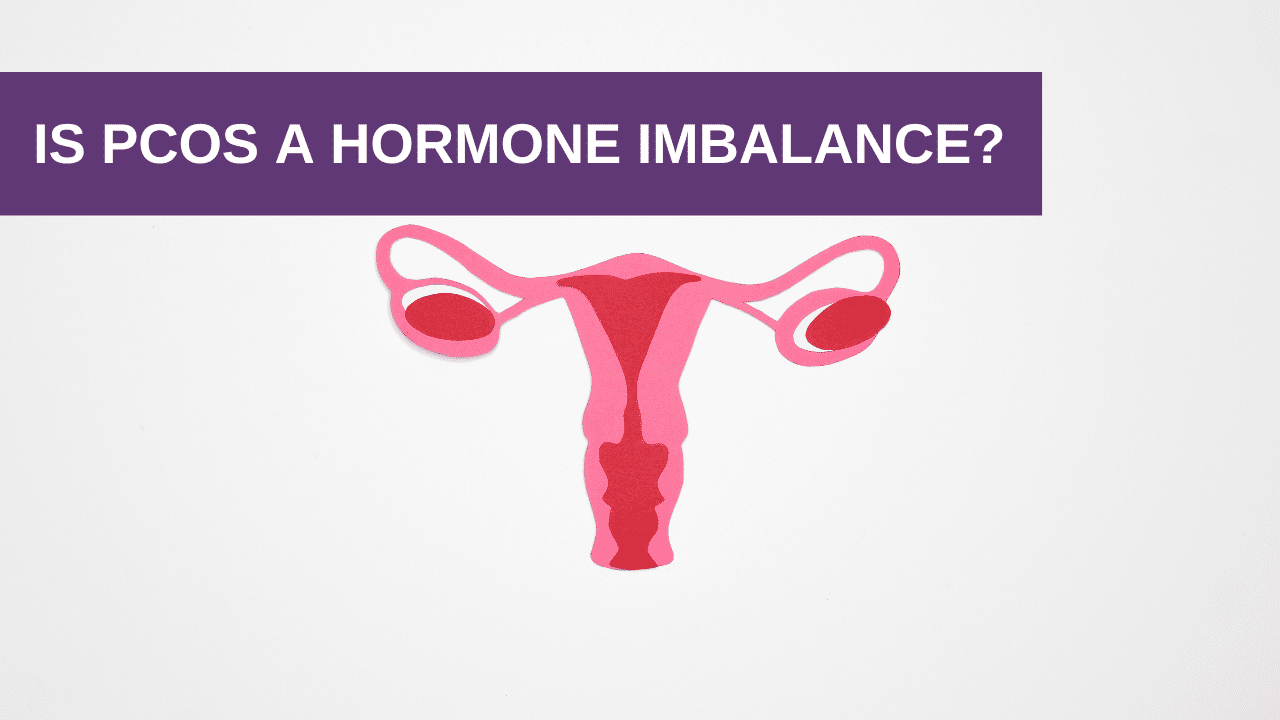Can you have polycystic ovary syndrome, or PCOS, if your hormone levels are normal? Is PCOS a hormone imbalance?
PCOS is a metabolic disorder that can affect your hormones. Metabolic disorders negatively alter your body’s processing and distribution of macronutrients, meaning proteins, fats, and carbohydrates. Metabolic disorders are rooted in hypothalamic dysfunction, because your hypothalamus controls your metabolism.
When your hypothalamus becomes dysfunctional, it will contribute to the hormonal imbalances that are common in PCOS. The hormonal imbalances associated with PCOS include low progesterone levels, due to not ovulating regularly. Low progesterone then contributes to estrogen dominance and insulin resistance.
Women with PCOS have high androgen levels or male hormones, which cause hirsutism, or hair in male patterns like on your face and chest, as well as acne. Weight gain, especially around your middle, can also indicate insulin resistance.
Oftentimes, women with PCOS will have what appears to be normal female hormone levels.
But if you look at the estrogen level in relationship to the progesterone level, you can see estrogen dominance. You may have progesterone levels that are high enough to indicate you’re ovulating, but are too low for how much estrogen you’re making. You can continue to have periods on a regular basis and still have polycystic ovary syndrome because of your estrogen-dominant state.
The key hormonal imbalance that causes PCOS is high androgen levels. You have different cells in your ovaries. Theca cells help develop follicles by producing the androgen substrate that granulosa cells turn into estrogen. In PCOS, theca cells produce too much androgen, leading to too much estrogen and testosterone related side effects.
Your androgens – testosterone and DHEA – may still be within normal limits, but may be too high for you. So, checking hormone levels doesn’t always give us the big picture of what’s causing PCOS.
The following symptoms are often associated with PCOS:
- Irregular periods, including missing periods or very long cycles
- Infertility
- Signs of estrogen dominance, with increased belly fat, in spite of dieting and exercising
- Signs of hirsutism, or hair on the face, chest, and back, or excessive hair on limbs and pubic area. Acne and male pattern balding are also signs of hyperandrogenism.
These symptoms can occur even if your sex hormones are still in normal ranges. It’s one of the reasons I don’t check female hormones unless you’re trying to get pregnant.
If infertility is an issue, then I’ll check progesterone levels about one week before you expect to have a period, to see if you’re ovulating and if you’re making enough progesterone to carry a pregnancy.
The main reasons hormone levels are not accurate in diagnosing PCOS are:
- You rarely go to a healthcare provider with your baseline hormone levels before you develop imbalances. So we don’t know what your norm is.
- You can be at the high or low end of normal with your hormones. Which may feel abnormal for you, but look normal to your healthcare provider.
So, as you can see, tracking hormone levels can be a little tricky when you put the big picture together.
Oftentimes, I’ll see a young woman who might be having a little irregularity with her periods, yet her follicle-stimulating hormone still indicates that she’s making enough estrogen. Her luteinizing hormone is still saying that she’s ovulating. Her testosterone and DHEA levels are not too high, but she has an elevation in cardio reactive protein, an inflammatory marker of the cardiovascular system, which is often elevated in women with polycystic ovary syndrome.
Another elevation that I see in women with PCOS that is not usually looked at is in a hormone called prolactin. And while it’s usually not above normal, it’s dyscircadian. This means they make too much of it during the day, which can block the effectiveness of their female hormones. So, while their female hormones look like they’re in normal ranges, they’re not really getting into the cells because of prolactin.
So, is PCOS a hormone imbalance? While hormonal imbalances may not show on blood work, you are imbalanced if you have PCOS.
The best way to get your hormones back in balance naturally is to support your hypothalamus.
Your hypothalamus controls your adrenal glands. When the adrenals produce too much DHEA, this can contribute to polycystic ovary syndrome. Your hypothalamus also helps control glucose metabolism, which can contribute to a metabolic disorder, as well infertility.
Also, your hypothalamus controls your ovaries’ production of sex hormones to help regulate your periods and increase fertility. When you support your hypothalamus with Genesis Gold®, it can help mitigate many of the symptoms of PCOS. It can also balance your body to prevent hirsutism, reverse insulin resistance, regulate your periods, and increase fertility.
We talk a lot about PCOS in our Hormone Support Group. You can access it through our free Hormone Reboot Training. If you want to learn more about PCOS, and that you can improve your wellbeing when you support your hypothalamus, I’d love for you to join us.



0 Comments